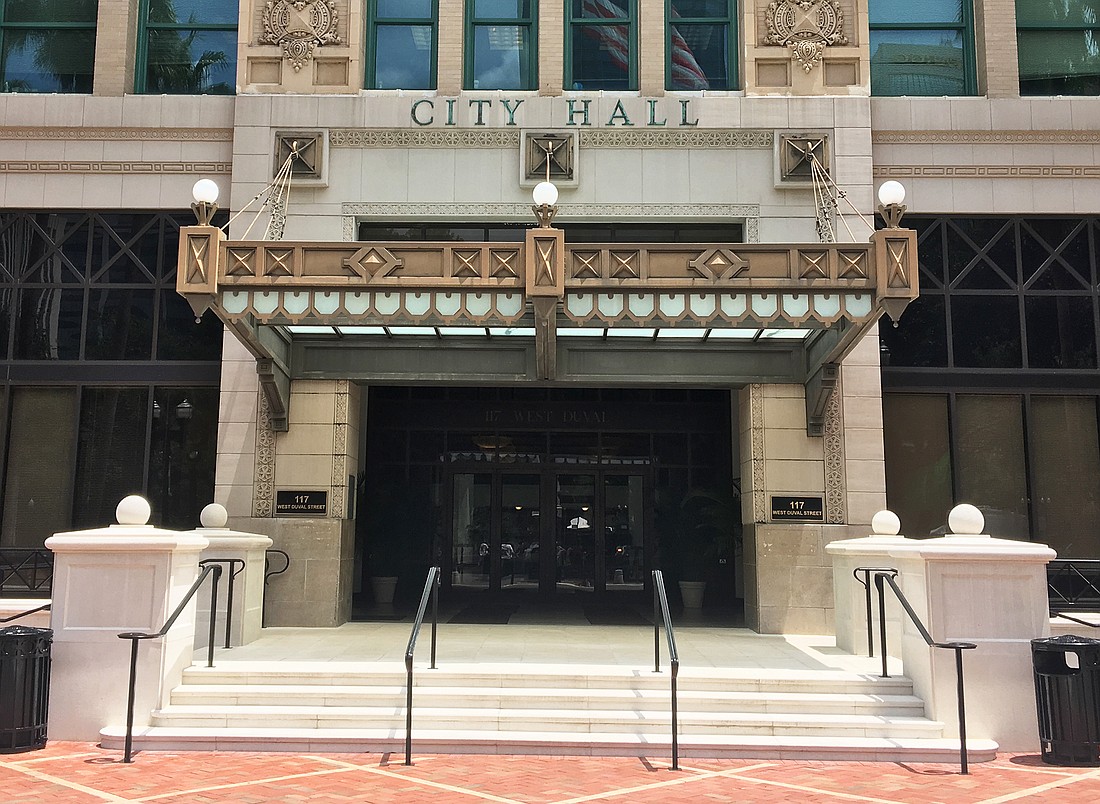
The Jacksonville City Council will decide May 26 whether to include small businesses without brick-and-mortar storefronts to a proposed program that would provide up to 4,500 Duval County businesses $2,000 in rent and mortgage relief.
The Council Finance Committee voted 5-2 May 19 to amend Ordinance 2020-0247 to make sole proprietors and contract workers who operate out of their homes eligible for the $9 million in rent and mortgage aid for small businesses impacted by COVID-19.
District 5 Council member LeAnna Cumber, who filed the bill as an emergency May 6, said her original intent was to help small businesses owners stay in their storefronts, and for the city to avoid more vacant commercial property as a result of the pandemic.
“It helps people that have the storefronts and for those who have more than one employee are then going to be able to hire back their employees that they’ve either furloughed or laid off,” Cumber said.
Council member Randy DeFoor, who proposed the amendment, said she wants to capture sole proprietors who didn’t meet a two-employee minimum requirement in the city’s $26 million COVID-19 small business relief program partnership with VyStar Credit Union.
DeFoor, Council member Joyce Morgan and other city lawmakers said they heard from those business owners after Council approved the VyStar loan program April 27.
Many don’t rent or own a commercial storefront and would be missed by the intent of Cumber’s legislation, DeFoor said.
“They’re struggling, and just because they work out of their home doesn’t mean they don’t deserve to benefit from this relief equally,” she said in a phone interview after the meeting.
Cumber, Finance Committee vice chair, voted against the amendment along with Committee Chair and District 3 Council member Aaron Bowman.
She argued that business owners who work out of their homes can deduct a portion of their home mortgage and utility costs on their federal income taxes.
Cumber, who owns transportation consulting firm LeAnna Cumber & Associates, argues her bill would help sole proprietors that rent or own commercial space but still did not qualify for the city-VyStar loan program.
“I’ve done both. I’ve worked from home and had a brick-and-mortar, and it’s not the same thing. For reason, you make business decisions to not have those additional expenses, so this is helping people that have those additional business expenses,” Cumber said.
Despite Cumber’s objection to the amendment, the altered bill passed the Finance Committee 7-0.
Cumber said her proposed program’s qualifications and the payment distribution is modeled after the city’s $40 million individual COVID-19 aid program that offered $1,000 debit cards. It was part of a $159 million city stimulus program funded by federal Coronavirus Aid, Relief and Economic Security Act.
Like the individual stimulus, the $2,000 payment cards will be provided by Fidelity National Information Service Inc.
Cumber has been working with city CFO Patrick “Joey” Greive on the application infrastructure, which will be online. Greive said May 19 that the cards will be mailed directly to business owners.
Cumber said during debate on the amendment that including non-brick-and-mortar businesses would add another layer of documentation verification for the city and make distribution of the aid slower.
“I don’t see a difference, quite frankly,” DeFoor said during the meeting. “(Business owners) could bring a mortgage statement and utility bill … This would be so easy to do.”
Finance Committee members Tommy Hazouri, Ron Salem, Terrance Freeman and Ju’Coby Pittman joined DeFoor in supporting the amendment.
Cumber said the $9 million in the bill is a reappropriation of what the Council approved to pay for the city’s portion of the VyStar loan program.
That money was reimbursed in the $159 million CARES Act award and would be returned to the city operating reserve fund at the end of the fiscal year if it goes unused.
Bowman, who also voted against DeFoor’s amendment, said he does see the need to aid business owners who don’t qualify for the proposed and existing city relief aid.
He suggested a Council member hold a special meeting to address groups missing from the aid directly.
“We socked away $160 million in four days without any Council member having any input on it at all, and I think what we’re seeing is a little bit of the fallout of that,” Bowman said.
Debate remains
Adding nonstorefront businesses to the plan is not a done deal.
The bill passed the Council Neighborhoods, Community Service, Public Health and Safety Committee on May 18 in a 6-1 vote without DeFoor’s amendment, so the full Council will have to reconcile the two versions before a final vote.
Council member and Neighborhoods Committee member Brenda Priestly Jackson voted against the bill on the basis she didn’t think the legislation reached the level of a one-cycle emergency.
Excluded from loan program
The Finance Committee also removed language from a Neighborhoods Committee amendment that restricts certain business types that were also excluded in the city-VyStar program.
Bowman said, although he doesn’t agree with the operations of some of those business types, restricting an aid program during a pandemic could cost jobs and called the restriction “an overreach” by Council.
The list includes:
• Adult entertainment.
• Amusement parks.
• Casinos and gambling establishments.
• Dry cleaning locations with hazardous chemicals on site.
• Marijuana and cannabis-related businesses.
• Meat packer processing and slaughter operations.
• Timesharing and health club facilities.
• Waste disposal firms and landfill handlers of environmental contaminants.
Both committees approved adding the use of the city’s contract with FIS to provide and mail the payment cards and allowing one commercial tax identification number during the application process to prevent a business owner from receiving multiple payments for subsidiary businesses.
Under the current bill, a business owner who previously qualified for the city’s $1,000 stimulus program would be eligible for the $2,000 payment.